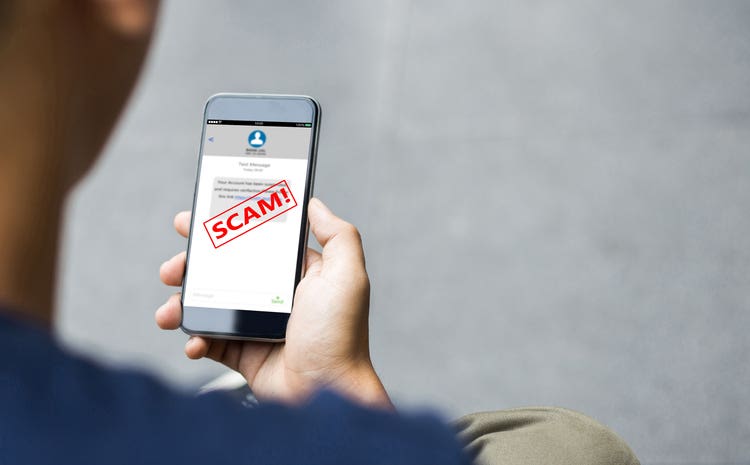
Americans are back on the road, and so are scammers! The Bureau of Transportation Statistics estimates we will take over 800 million domestic trips in 2024. At the same time, nearly 16 million of us visited another country in just the first quarter of this year, according to the Mastercard Economics Institute.
So, how are we getting from Point A to Point B? To many of us, booking travel is an art we enjoy doing ourselves, going directly to hotel and airline sites and racking up points through loyalty programs. Others troll for deals using third-party booking sites, while more than a third of traveling millennials and Gen Z are opting to use traditional travel agents for making their vacation plans.
No matter how you book, it’s buyer beware. Con artists have taken note of our travel enthusiasm and have come up with an assortment of rip-offs and scams to swindle us out of our vacation dollars!
The Federal Trade Commission has assembled a list of common travel scams to watch out for when booking trips and hotel stays this year.
Prize vacations
We’ve said it before, if it sounds too good to be true, it probably is too good to be true. Scammers, often claiming to be a big-name hotel group or airline, will reach out through emails, calls, or text messages to say you’ve won a vacation, even though you never entered a contest. When you respond to these offers, you’ll be told that you have to pay "fees" or "taxes" to claim your prize. A legitimate company won’t ask you to pay for a free prize.
Free Vacations
You might get robocalls from companies offering great deals on vacation packages. Robocalls from companies trying to sell you something are illegal unless the company has your written permission to call you. If they are already breaking the law by robocalling you without permission, there’s a good chance it’s a scam.
International travel document scams
Anyone who’s tried to apply for a visa or is trying to get a passport close to a booked departure time is vulnerable to online "facilitators" who claim to be able to help you get international travel visas, passports, or other documents. These sites are just copycats of the U.S. Department of State website. But these sites charge you high fees, including fees for services that are free on the U.S. Department of State's website.
International driving permit scams
Check before you go, many countries will recognize your US driver’s license for personal travel stays. If you do need an International Driving Permit, be careful before getting it online. Scammers create websites to sell fake IDPs. Buy one and you’ll not only have a worthless document, you could face legal problems or travel delays if you’re detained for using it in a foreign country. Only the U.S. Department of State, the American Automobile Association (AAA), and the American Automobile Touring Alliance (AATA) are authorized to issue IDPs.
Vacation home scams
Scammers know you want the best looking property, closest to the beach and other attractions and at a below the average rate. That’s why they will hijack real rental listings and advertise them as their own, or create listings for private homes not even on the market. Other scammers don’t bother with real rentals — they make up listings for places that aren’t really for rent or don’t exist.
Navy Federal Credit Union offers tips for spotting and preventing a rental scam. In it they advise you to make sure there are more ways to contact the owner or agent than just email and to ask questions about the local amenities to see if they really know the area. Make sure the address is real - does the property match the picture in Google Map’s street view of the listing? If it’s a resort or hotel, call the front desk to verify the information. Finally, don’t pay for rentals by wire transfer, prepaid or gift cards or apps like Venmo that can’t be reversed if the rental offer is fraudulent.
Charter flight scams
Airline travel can be costly, it’s often the most expensive part of a trip. You may discover an offer to travel to your destination by charter plane, or you may hear about a travel company selling unsold charter vacation packages with hotel and sightseeing tours. Investigate the company before booking! Check them out at the Better Business Bureau and look them up on the U.S. Department of Transportation’s (DOT) Special Authorities Division list of approved public charter flights. If the charter is not approved by DOT before the package is sold, you’re probably dealing with a dishonest operator.
Learn to recognize the signs of a scam
Scammers don't give specific details about the travel offer. They promise “five-star” resorts or a “luxury” cruise ship. Walk away if the organizer can’t or won’t give you more specific details.
Scammers only accept payment by way of wire transfer, gift card, or cryptocurrency. These allow them to collect the money instantly electronically, once they’ve downloaded the money, it’s almost impossible to get it back.
Scammers pressure you to make the decision now. If someone tells you that you have to decide whether to buy a travel package or rent a vacation property immediately, don’t do it. Scammers don’t want to give you time to ask questions or do research.
Scammers offer premium vacation properties for super low prices. Repeat, if a deal sounds too good to be true, it probably isn’t! the rent a lot less than comparable rentals? Below-market rent can be a sign of a scam.
Be wary when spending your vacation funds
Get recommendations from trusted sources. Ask your family, friends or co-workers about their experiences with travel agencies, vacation rentals, hotels, and travel packages. Check out comparison websites and apps. Travel apps are not all the same. It’s important to know whether you’re buying from the app company or the actual airline or hotel or resort. Who will you contact for missed or canceled flights? Who issues a refund? What are the fees for changing a reservation and can you earn loyalty points through your booking?
Ask about mandatory hotel "resort fees" and taxes. You can’t make a fair comparison between hotels unless you know all the fees that will apply to your stay. Check the fine print before booking or call the hotel and ask about “resort fees” or any other mandatory charge that can affect the total cost. Don’t forget taxes, some communities charge a hefty amount while a property down the street may have a lower rate.
If you’re buying travel insurance, be sure the agency is licensed by visiting the website of the US Travel Insurance Association. https://www.ustia.org/ Even if it is listed, check to see what is and isn’t covered before buying and take a copy of your insurance card with you on the trip.
The FTC’s 3 Ways To Avoid Travel Scams are simple
Don’t sign or pay until you know the terms of the deal. Get a copy of the cancellation and refund policies before you pay. If you can’t get those details, or if they try to rush you into signing, walk away.
Do your research. Search their name with the words “scam,” “review,” or "complaint." Read the reviews of what others say about them. Check the address to make sure the property really exists. Call the front desk or the hotel or resort and confirm their location and other details on the contract.
Don’t pay with wire transfers, gift cards, or cryptocurrency. It’s a sure sign of a scam. If you pay with wire transfers, gifts cards, or cryptocurrency and there’s a problem, you’ll lose your money with no way to track it or get it back.
Happy travels!





